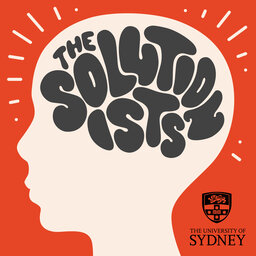Save the cities, fix the planet – Ian Goldin on the power and plight of our cities
Why do you live where you live?
If you’re lucky, it’s by choice. Maybe you love the solitude and sprawling nature of the bush. Maybe you can’t get enough of the coffee, cuisine and culture that makes your dense inner-city neighbourhood special.
Many of us don’t get to choose, though. People are forced into tiny living spaces as their cities grow in population, while others are pushed to the outskirts when gentrification prices them out of their homes. As our global population grows and the climate crisis worsens, how we live – and how we live together – needs to change.
Ian Goldin, Professor of Globalisation and Development at the University of Oxford, says cities are the greatest engines of innovation. They’re melting pots, bringing together the top performers and brightest minds from all over the world. But they’re hotbeds of inequality, and that inequality is only growing. At the same time, some of the world’s greatest cities are in great physical danger thanks to rising sea levels.
That’s the big picture, but what does a great city feel like? To give you a sense of what makes a city livable and loveable, Dr Jennifer Kent, a Senior Research Fellow in Urbanism at the University of Sydney School of Architecture, Design and Planning, takes you on a walking tour of the Sydney suburb of Abbotsford.
+++
The Solutionists is podcast from the University of Sydney, produced by Deadset Studios. Keep up to date with The Solutionists by following @sydney_uni on Twitter, Facebook, and Instagram.
This episode was produced by Liam Riordan with sound design by Jeremy Wilmot and field sound recording by Harry Hughes. Executive producer is Madeleine Hawcroft. Executive editors are Kellie Riordan, Jen Peterson-Ward, and Mark Scott. Strategist is Ann Chesterman. Thanks to the technical staff at the Faculty of Arts and Social Sciences Media Room.
This podcast was recorded on the land of the Gadigal people of the Eora nation. For thousands of years, across innumerable generations, knowledge has been taught, shared and exchanged here. We pay respect to elders past and present and extend that respect to all Aboriginal and Torres Strait Islander people.
In 1 playlist(s)
The Solutionists, with Mark Scott
Big challenges need big solutions. Meet the minds making it happen. Join Mark Scott, Vice-Chancello…Social links
Follow podcast
Recent clips

Do high-impact sports damage our brains?
25:48

What happens when you send a child to jail?
25:38

Could a text message save you from a heart attack?
26:27
 The Solutionists, with Mark Scott
The Solutionists, with Mark Scott